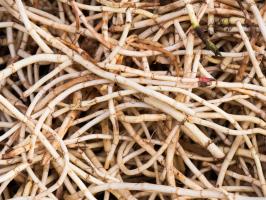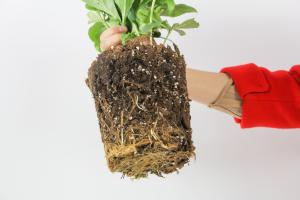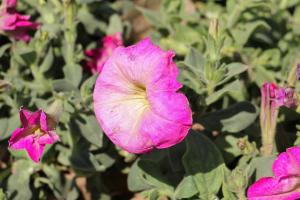What Pot Plants Like Full Sun
Pot plants can be a beautiful and convenient addition to any home, but not all plants are the same. Some plants require full sun to thrive and grow, while others prefer shade or partial sun. Knowing which plants require full sun can help you choose the best plants for your garden or indoor space.
What is Full Sun?
Full sun refers to an area that receives at least six hours of direct sunlight per day. This means that the sun shines directly on the area without any obstructions such as trees or buildings. Full sun exposure can vary depending on your location and the time of year. Certain plants thrive in full sun, while others may suffer and die if exposed to too much direct sunlight.
Which Pot Plants Need Full Sun?
Several types of pot plants require full sun to grow, including:
Tomatoes - Tomatoes are a popular vegetable that requires full sun to develop ripe, juicy fruits. They need a minimum of six to eight hours of direct sunlight daily.
Peppers - Peppers come in different varieties and require full sun to ripen and grow. They need a minimum of six to eight hours of direct sunlight daily.
Herbs - Many herbs, such as basil, cilantro, and oregano, require full sun to thrive. They need a minimum of six to eight hours of direct sunlight daily.
Succulents - Succulents are known for their ability to store water and tolerate drought. They also require full sun to maintain their vibrant colors and compact growth.
What Other Factors Affect Plant Growth?
Full sun is not the only factor that affects plant growth. Other factors to consider include:
Soil Nutrients
Soil nutrients play an essential role in the growth and development of pot plants. Nutrient-rich soil can encourage healthy root growth and support plant growth. Consider using potting soil mixed with organic compost to provide your plants with the necessary nutrients to thrive.
Watering
Water is essential for plant growth, but too much or too little can cause damage. Overwatering can lead to root rot, while underwatering can cause the plant to dry out and die. Be sure to water your plants when the soil feels dry to the touch but avoid letting the soil become waterlogged.
Temperature and Humidity
Temperature and humidity play a role in plant growth and development. Certain plants thrive in warm, humid environments, while others prefer cooler temperatures and drier conditions. Be sure to research your plant's specific needs and adjust your environment accordingly.
Conclusion
Understanding which pot plants require full sun can help you choose the best plants for your outdoor or indoor space. Be sure to consider other factors that can affect plant growth, such as soil nutrients, watering, temperature, and humidity. By providing your plants with the necessary conditions for growth, you can enjoy a beautiful and thriving garden all year round.

 how many times do yo...
how many times do yo... how many planted tre...
how many planted tre... how many pine trees ...
how many pine trees ... how many pecan trees...
how many pecan trees... how many plants comp...
how many plants comp... how many plants can ...
how many plants can ... how many plants and ...
how many plants and ... how many pepper plan...
how many pepper plan...

































